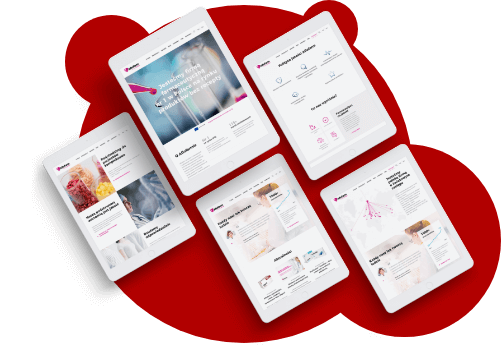Flutter

What is Flutter
Flutter is a modern open-source framework created by Google that enables building native mobile and web applications from a single codebase. It uses the Dart language and offers a wide range of pre-built UI components, speeding up the process of creating visually appealing and functional applications. Flutter allows native code compilation, ensuring high performance across various platforms, including Android, iOS, web, and desktop. It is valued for its flexibility and community support.
Why choose Flutter?
Free Consultation
Where do we use Flutter?
FAQ
-
Is Flutter suitable for my specific type of project?
Flutter is an excellent choice for creating native mobile applications for iOS and Android systems. It is suitable for both simple apps and more advanced projects requiring a unified user interface across multiple platforms. With a single codebase, Flutter enables efficient application management on both systems, speeding up the development and maintenance process.
-
Is Flutter scalable?
Yes, Flutter is scalable and ideal for expanding projects as they grow. By dividing the application into smaller, manageable components and integrating with various tools and libraries, Flutter allows efficient development as the business scales. Flutter's modular nature and support for architectures like BLoC (Business Logic Component) allow scaling applications without complications.
-
What are the popular libraries and tools that can be used with Flutter?
Popular libraries and tools used with Flutter include Firebase for database management and authentication, Provider for state management, and Flutter Packages, a rich library of ready-made modules and extensions that simplify application development. Firebase is particularly useful for quickly adding backend features to applications, while Provider supports managing dependencies and application state transparently and scalably.
-
What are the main advantages of Flutter in the context of rapid prototyping and iteration?
Flutter offers hot reload, enabling instant preview of changes made to the code. This significantly reduces the time needed for testing, bug fixing, and UI adjustments, ideal for projects requiring rapid iteration and adaptation. Developers can quickly make changes to the user interface and immediately see the effects, speeding up the entire development process.
-
What are the main advantages of using Flutter compared to native mobile app development?
Flutter offers a unified user interface (UI) across different platforms (iOS and Android), significantly reducing the development time for mobile applications. Additionally, Flutter provides hot reload, allowing immediate visibility of changes in the application during development. With a single codebase, developers avoid duplicating work and writing separate codes for each platform, saving time and resources.
-
What are the advantages of using Flutter in the context of state management?
Flutter offers various approaches to state management, including the Provider library for managing dependencies and application state. This allows efficient data and state management depending on the project's needs. With Provider, developers can easily organize and share data between different parts of the application, ensuring consistency and ease in managing application state.
How to choose a good Flutter Software House?
We are here to help!
